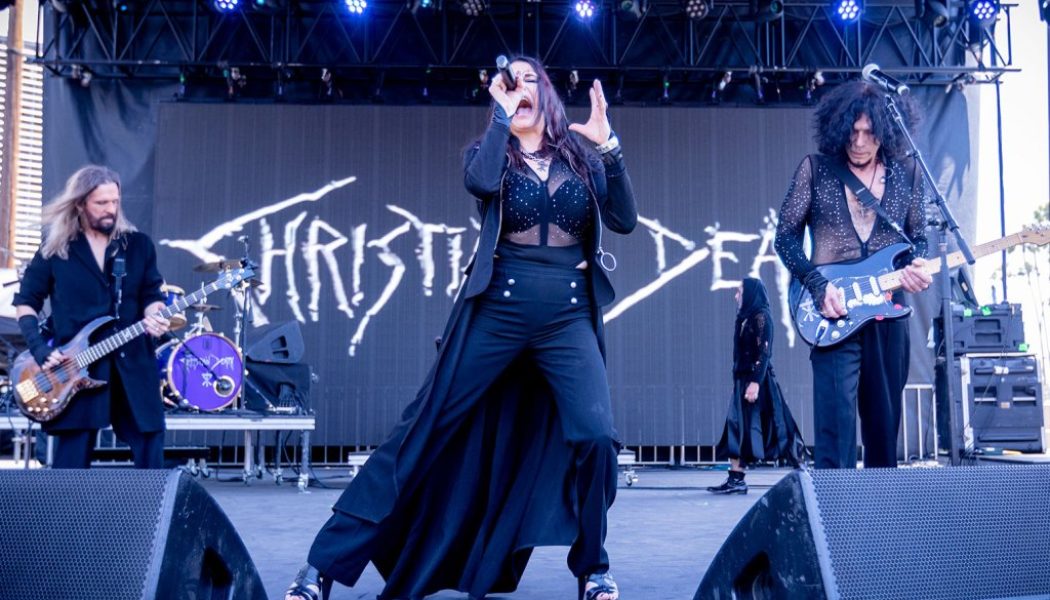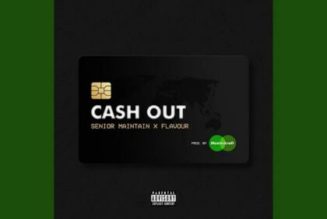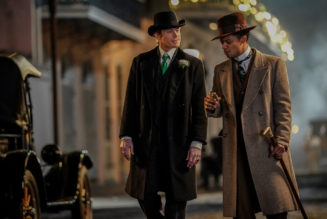Goth, industrial, punk and space-rock fans were the first to discover Los Angeles’ Cleopatra Records in the 1990s. The independent upstart — formed in 1992 by Brian Perera — initially rode the second wave of goth music right into the bins of indie record stores and chains. During that decade, it presciently created electronic music label Hypnotic Records (in 1996) and hair metal imprint Deadline Music (1998) ahead of the EDM explosion and the hard rock revival. Perera noticed the electronic body music movement in Europe expanding into trance and big beat and licensed earlier releases by U.K. stars like Juno Reactor and The Future Sound of London. The business strategy of signing ’80s hard-rock groups for moderate advances with low expectations and then watching the genre revive worked out well.
Perera’s ability to foresee trends, build catalogs and cater to a wide variety of tastes has kept Cleopatra viable for three decades. In its first 10 years alone, Perera says it averaged 40 to 50 releases per year. Starting out with just himself and his wife, Yvonne, the label grew by selling releases from such bands as Christian Death, Motörhead, The Damned and Kraftwerk to major retailers including Tower Records and Hot Topic, but like other purveyors of physical product, scrambled to survive during the Napster years. “It was kind of a no-man’s land,” Perera recalls. “The record chains and independent stores weren’t buying anything from us.”
After dipping into its savings to stay afloat, the company took a chance on digital, sending pallets of music they owned or had license to on CDs to an aggregator in the early 2000s to digitize. Cleopatra started selling downloads through eMusic before the streaming revolution began. “It was like found money,” Perera says. “We decided we should do more and make sure that all our contracts have a lot of digital rights. Or if somebody doesn’t want to do physical, let’s get their digital.” Cleopatra distributes such content through digital service providers and uses YouTube’s fingerprint system (Content ID). Perera says that physical sales are also strong now that vinyl and CDs are rebounding.
Today, Cleopatra employs a staff of 14 and has expanded into jazz, hip-hop, country, punk (it bought the California labels Kung Fu Records and New Red Archives and part of Suburban Noise Records) and progressive rock, recently acquiring a long-term physical license for Magna Carta’s catalog. Cleopatra has also recorded five albums with William Shatner. His 2020 release, The Blues, topped Billboard’s Blues Albums chart. Despite its eclectic roster and plans to open a six-person office in Austin this fall, Cleopatra also remains true to its goth/industrial roots with recent releases by Not My God and Priest (featuring ex-members of Ghost).

How did you decide to launch Cleopatra?
It was just me really being a fan of music and wanting to be involved in the industry. In high school, I tried to get a regular job working at McDonald’s, and they said, “You have to cut your hair off or we’re not going to hire you.” That was the first point in my life that I knew I had to get into a business where it was my business. There would be no discrimination in how you showed up or looked for work. I was fortunate to start off early enough where I could make it work and make a living for myself.
Was it tricky to broker initial deals for albums by Christian Death, Kraftwerk and Hawkwind?
Christian Death we recorded and signed in-house. We took a chance on [group founder] Rozz [Williams] to bring him back. Kraftwerk and Hawkwind were licensing deals under EMI terms. They basically said that you can only have them for a very short time, but I was creative about it. I made really cool packaging and put a lot of effort into doing the first 1,500 units in a cloth bag that came with a photo and a button, which no one else was doing at the time. That became the ’90s version of a collector’s item.
How much capital did you start with?
The initial startup came from making band T-shirts and clothing in my garage. I saved $10,000 and I laid it all down on Motörhead’s On Parole record, because they wanted money upfront. But I was fortunate because On Parole made a profit after four months of release, and the first licensing deals were successful. My wife, Yvonne, and I were running the company in a garage, so the overhead was low. She helped out with accounting and boxing up orders at the start. She now runs the accounting department full time.
There were trucks showing up. The neighbor called up the city and said, “Those guys are running a business.” We were then forced to open up a real office space with a warehouse. We kept the overhead low even when we had the office, but I would have stayed in the garage as long as possible. I’m fortunate that I’m able to do what I’m doing, and even though it’s on a larger scale, it still feels like 1994.

At what point did you start seeing success?
There was a goth magazine at the time called Permission. If you had an article in there or an advertisement, selling 3,000 to 5,000 units was no problem. There was already a curiosity base. Based on what the band looked like, and not even knowing about the music or what they thought the music sounded like, right off the bat, you would have sales. I would have college radio people call me up: “Hey, can you send me a promo of this?” So at the birth of Cleopatra, it was easy to get press. In the late ’90s, things got a little bit challenging. The goth and industrial audience shifted, and CD sales really slowed down. That audience was the first wave to figure out how to get free music.
When did Deadline start?
At the end of ’98. I saw a niche in those [hair] bands. There was one other label doing it at the time called CMC. They basically took every band that nobody wanted to be associated with. In the ’90s, all these hip A&R guys had to bring in the new, cool band, and it was a good look for the label. In ’99, if you worked at a major and you said, “Hey, I’ve got the new L.A. Guns record,” you would probably get fired on the spot. We signed Bret Michaels to do a record, and his idea was to do a tribute to Poison. He’s basically on every track, and he brought in a lot of his friends to play those songs. Those records have more value now to an audience than they did back then. A lot of those CDs we don’t have available anymore. We’re making them available on vinyl. That has really put a lot of fuel into the company.
What was the business strategy for Hypnotic?
We would do a lot of trance compilations, such as licensing The Future Sound of London. They had a big push from Virgin Records at the time, but we had their independent record. That helped us sell a lot of units. Then we licensed Paul Oakenfold, which charted with no effort whatsoever. The stars lined up. All of a sudden, we had a top 200 record in Billboard. That one, A Voyage Into Trance, sold close to 75,000.
How does digital compare with physical in terms of income now?
[Physical] doesn’t beat having your whole catalog available on digital — it’s always available, it never sells out, people get to discover it. Music supervisors find your music and place it in shows, and that generates income. Physical is coming back, and digital just keeps going. It seems like it’s good times for everyone.

It sounds like, based on Cleopatra, licensing deals can be very good in the short term.
They’re good for short-term gains because, nowadays, a lot of artists don’t want to sell their masters. If you can get an extensive term, more than three years, that’s good. If the relationship works well, it continues for the next album and then you keep on extending the deal. A lot of those [early] short-term deals didn’t get renewed, and at that point, I realized that I had to sign and record artists so that I would have stuff that I own. I knew that that was crucial to continue.
What would you say was the biggest mistake you made when you started Cleopatra?
I made a few mistakes by not signing some acts … but I didn’t have the financing at the time. People were getting shopped from big management firms, and it took me a while before I realized that coming from a manager’s point of view, you’re looking for the best money upfront. My strategy now is giving more upfront so we don’t lose stuff just for a couple of bucks.
How did the deals with Lorrie Morgan, Judy Collins and Todd Rundgren come about?
[Around 2015,] we started signing some country artists like Sammy Kershaw, Joe Diffie, Collin Raye and Linda Gail Lewis, so Lorrie Morgan was a perfect choice to sign and build in this genre. Judy Collins came about from being friends with her longtime manager, Katherine DePaul, who also helped Judy run her label. The Todd Rundgren relationship started in 2000. We had an idea of remixing his hit songs in a different way with industrial acts. He liked the out-of-the-box concept.

Do you think the industry underestimates the genres that Cleopatra releases?
Because we do so many different genres, it confuses them, in a way. We hire people that are known more for acting. We did a deal with William Shatner. We brought in these great players on [2011’s Seeking Major Tom] — Steve Hillage from Gong, Wayne Kramer from The MC5 and [Deep Purple/Rainbow guitarist] Ritchie Blackmore. Ritchie Blackmore doesn’t want to play on people’s records, but he’s such a big fan of Shatner and Star Trek. Johnny Winter wanted to be a part of it because he said Star Trek was his favorite show. We’re continuing those types of records. We’re doing a record right now with Ann-Margret, and we’ve got Pete Townshend and Joe Perry — people that I don’t think we would [otherwise] have had access to.
Has any of your music been licensed for TV?
We had one artist who was kind of obscure: Huw Lloyd-Langton. He was the guitar player for Hawkwind, and we got him in the new season of Stranger Things. The song, “Got Your Number” [by his band, The Lloyd-Langton Group], went from complete obscurity to a track that has [700,000] streams. We were selling his box set [2020’s Anthology] because we bought his catalog.
How has Cleopatra’s film division been doing since it launched about five years ago?
We would pick up and distribute finished movies and documentaries, and we would do our own productions as well. We did one on Lynyrd Skynyrd based on the plane crash, and then we did another one called Verotika with [Misfits’] Glenn Danzig that got some attention.
What advice would you give to someone who’s looking to start a label?
You have to be a part of that culture, that lifestyle. When I was starting up, I was heavily into being a part of the club scene and the culture. At one point, I was even working a side job where I was backstage security at a club called Scream. This was the first major alternative club in L.A. that had Jane’s Addiction, The Mission, Lords of the New Church, X. Guns N’ Roses even played there. It was Friday and Saturday night in downtown, so I got to meet a lot of people through that as well.
This story originally appeared in the Aug. 27, 2022, issue of Billboard.
[flexi-common-toolbar] [flexi-form class=”flexi_form_style” title=”Submit to Flexi” name=”my_form” ajax=”true”][flexi-form-tag type=”post_title” class=”fl-input” title=”Title” value=”” required=”true”][flexi-form-tag type=”category” title=”Select category”][flexi-form-tag type=”tag” title=”Insert tag”][flexi-form-tag type=”article” class=”fl-textarea” title=”Description” ][flexi-form-tag type=”file” title=”Select file” required=”true”][flexi-form-tag type=”submit” name=”submit” value=”Submit Now”] [/flexi-form]










Tagged: business, cleopatra records, entertainment blog, Magazine, music blog, Record Labels